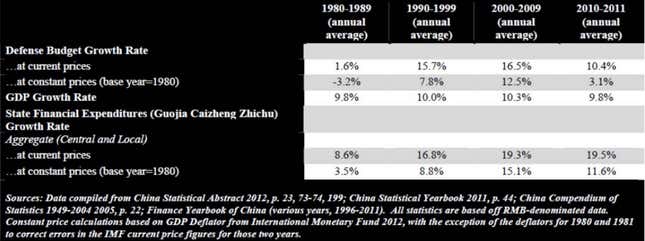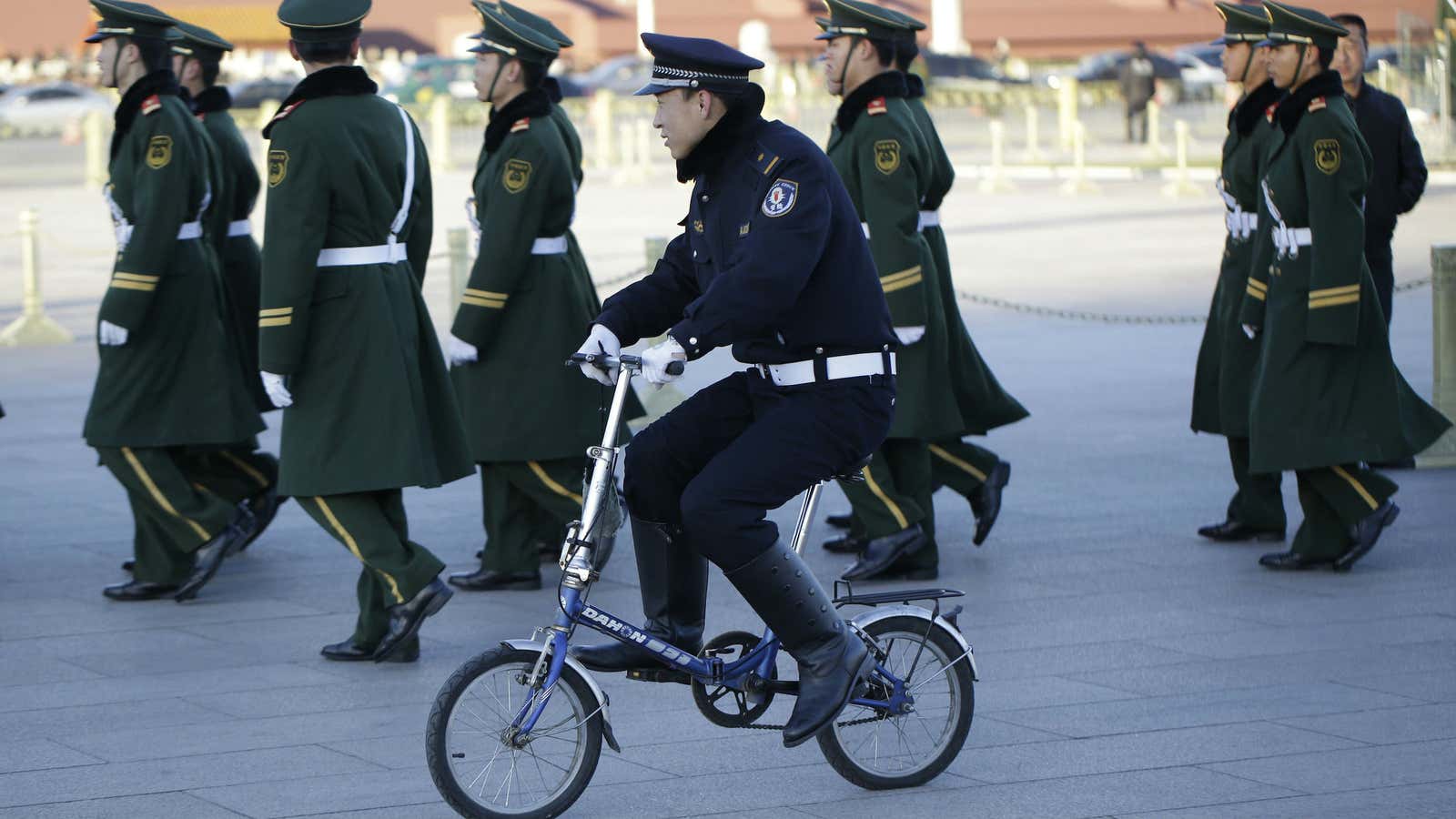Red alert! China plans to spend 720 billion yuan ($114 billion) on its military this year, according to a budget released at the National People’s Congress this morning. With the world’s second-largest military in terms of spending, the Chinese government has increased its defense budget by double-digit percentages annually since 2000. This year’s increase will be 10.7%, similar to last year’s and faster than the target GDP growth of 7.5%.
But perhaps this is the headline the Chinese government would rather the media focus on. Buried in the budget numbers is another figure: 769 billion yuan, to be spent on what is officially termed “public security.” That means money for China’s vast network of official and unofficial police, armed militia, jails and overall state security, i.e. keeping the country’s 1.3 billion people in check as discontent mounts over pollution (paywall), government corruption, and inequality. Chinese officials have countered that this is a misrepresentation, saying that some of the funds also go to things like improving public transportation or food safety.
Critics say the emphasis on social control feeds the unrest it’s meant to manage, as more money is spent on a massive defense apparatus instead of social welfare. “It shows the party is more concerned about the potential risks of destabilization coming from inside the country than outside, which tells us the party is much less confident,” Nicholas Bequelin, a researcher at Human Rights Watch, told Reuters. “A confident government that is not afraid of its population doesn’t need to have a budget for domestic security that is over defense spending.”
Protests as well as clashes in regions like Xinjiang, Tibet, or Inner Mongolia, where minorities resent Beijing’s rule, have prompted the government to raise domestic spending. Cases of unrest or “mass incidents” have jumped from 8,700 in 1993 to roughly 90,000 in 2010, according to government studies; the government hasn’t released official figures for recent years. In 2011, the same year of protests swept the Middle East and inspired the small and quickly squashed Jasmine Revolution in China, the government raised its domestic security budget above the country’s military budget for the first time, setting aside 624 billion yuan, a 13.8% jump from the year before. Since then it has set aside more for internal security than the military, though this year the increase in internal security spending was smaller.
China’s military spending is still only about one fifth of the United State’s but some say its budget, which doesn’t account for things like research and development, may be much higher.

